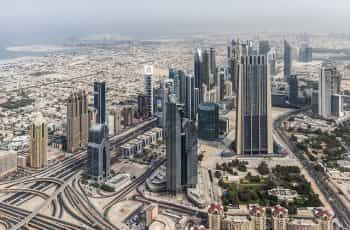Macau Casinos on the Brink with Impending Crackdown
Chinese attitudes towards gambling and international casino conglomerates are changing drastically. A previously liberalized casino sector was allowed to flourish without impunity across the streets of Macau for the past two decades but expiring licenses and a tightening approach towards capital flight rules have thrown the industry into an existential crisis. With the world rapidly adopting online casinos, there is major concerns growing from investors that the industry no longer represents an investment-grade credential.

The regulatory changes coming down the line for the Chinese casino sector could disrupt the status quo in a big way, paving the way for major shares dilution and a changing of the guard when it comes to ownership concentration.
©advogadoaguilar/Pixabay
The time for casinos to get their house in order across the Macau sector is running out. Six of the biggest operators on the strip are set to lose their licenses in June, and thus far the Chinese government has provided very little by way of guarantees that there will be an extension granted. This has left casino bosses with a grave set of circumstances on the horizon, and the current crop of overseas casinos could very soon be replaced by locally owned competitors.
All these hits to the revenue models of the casinos have compounded and been amplified by the onset of COVID. With the falling demand for casino products inflicted by the difficulties of travel between international borders, footfalls across the casino floors have been terrible. With the door remaining shut from international travellers in Macau, and the 2-week quarantine rule still in place for arrivals from the mainland, the situation shows no signs of getting better soon.
Another issue facing the sector is the tough stance towards junket operators now in play across the Chinese mainland. The capital transporters have proven to be an essential part of the business model in Macau, providing a gateway for wealthy Chinese citizens residing in the mainland to move money into the casinos of Macau. This service has been quashed in recent times and there are now tremendous financial pressures again facing the industry.
President Xi Jinping Pushes for Common Prosperity
The VIP culture of gambling in China appears to be the issue that is most at odds with the current posture of Xi Jinping’s vision for the future of the country. The massive industry represents a $3 billion asset but sits at odds with the party’s attitude towards wealth inequality and financial exuberance. The regime advocates moderation and conservatism when it comes to financing, so a highly public-facing and celebrated casino industry doesn’t fit with this outlook.
A changing power dynamic is beginning to take charge in the Chinese higher government tiers, and this comes with greater oversight and intervention in all aspects of the economy. The previous toleration of Macau’s capital flight circumvention is likely to be the first casualty in these changing attitudes. Billions of dollars have found their way illegally across the border, and the main beneficiary throughout the entire episode was the casinos in Macau.
With the government currently looking into the operating licenses of several casinos, there is expected to be a major shakeup in the look and feel of gambling in Macau. The biggest operators MGM China Holdings, Sands China, and Wynn Macau are all expected to lose a substantial share of the local market. With a predominately American ownership structure in place at these institutions, the shift towards the local ownership-dominated casino sector in Macau is looking increasingly more likely.
With US-China relations suffering in 2021, as Washington made a series of geopolitical moves in response to the Uyghur Muslim persecution in the Xinjiang region, and the impending annexation of Taiwan, tensions between the two countries have been building. Chinese officials are eager to demonstrate that they will not take the increasing intimidation tactics from the United States without a response. The casinos with American parent companies that are raking in cash hand over fist in Macau represent easy targets.
In order to maintain the status quo some serious and substantial changes are likely to be made when it comes to the ownership structures. American owners will need to dilute their own levels and allow local investment groups to accumulate up to 20% of the shares in the casinos here. This would allow more profits to stay in Macau, satisfy the Chinese government, and ensure the Americans get a piece of the pie.



